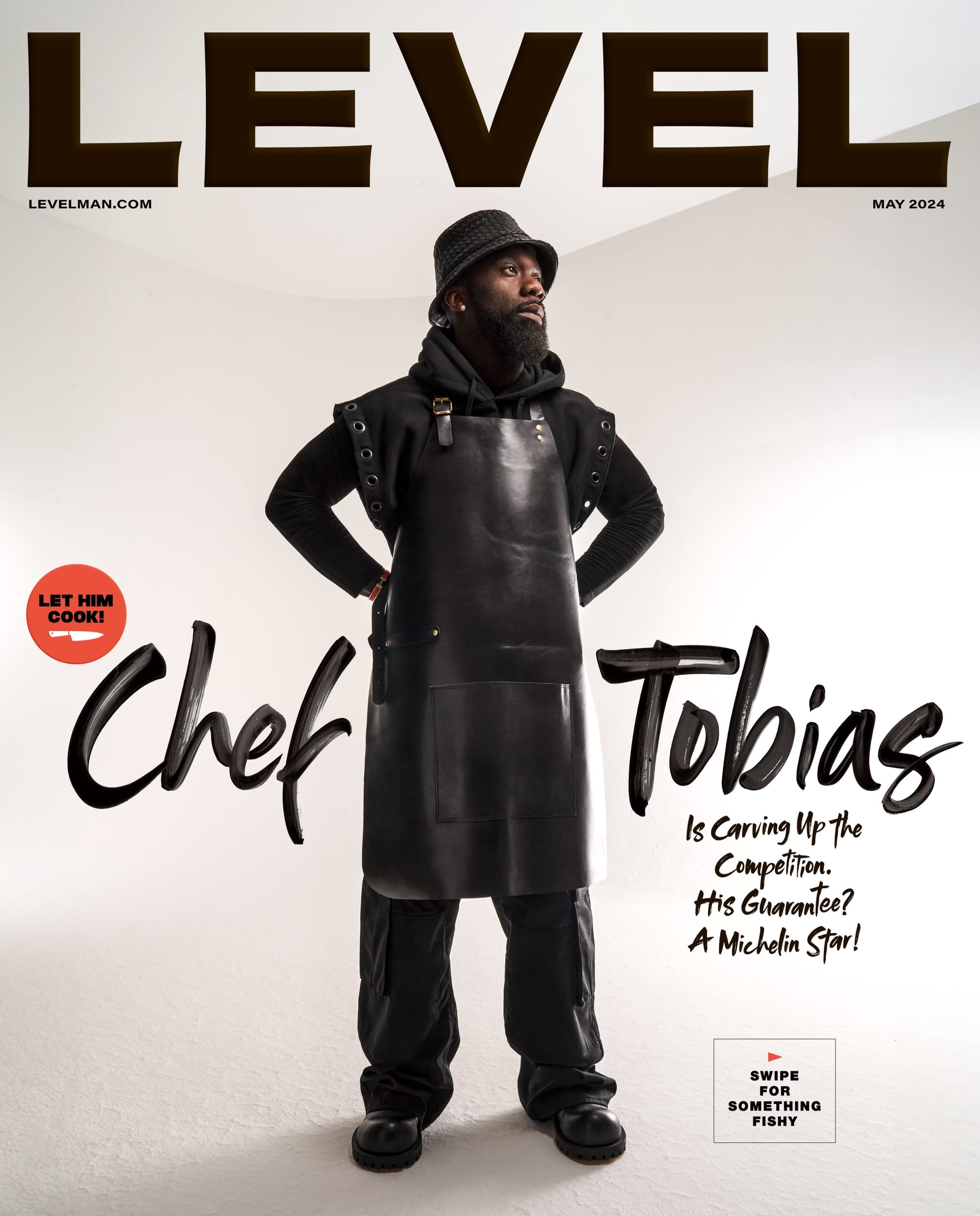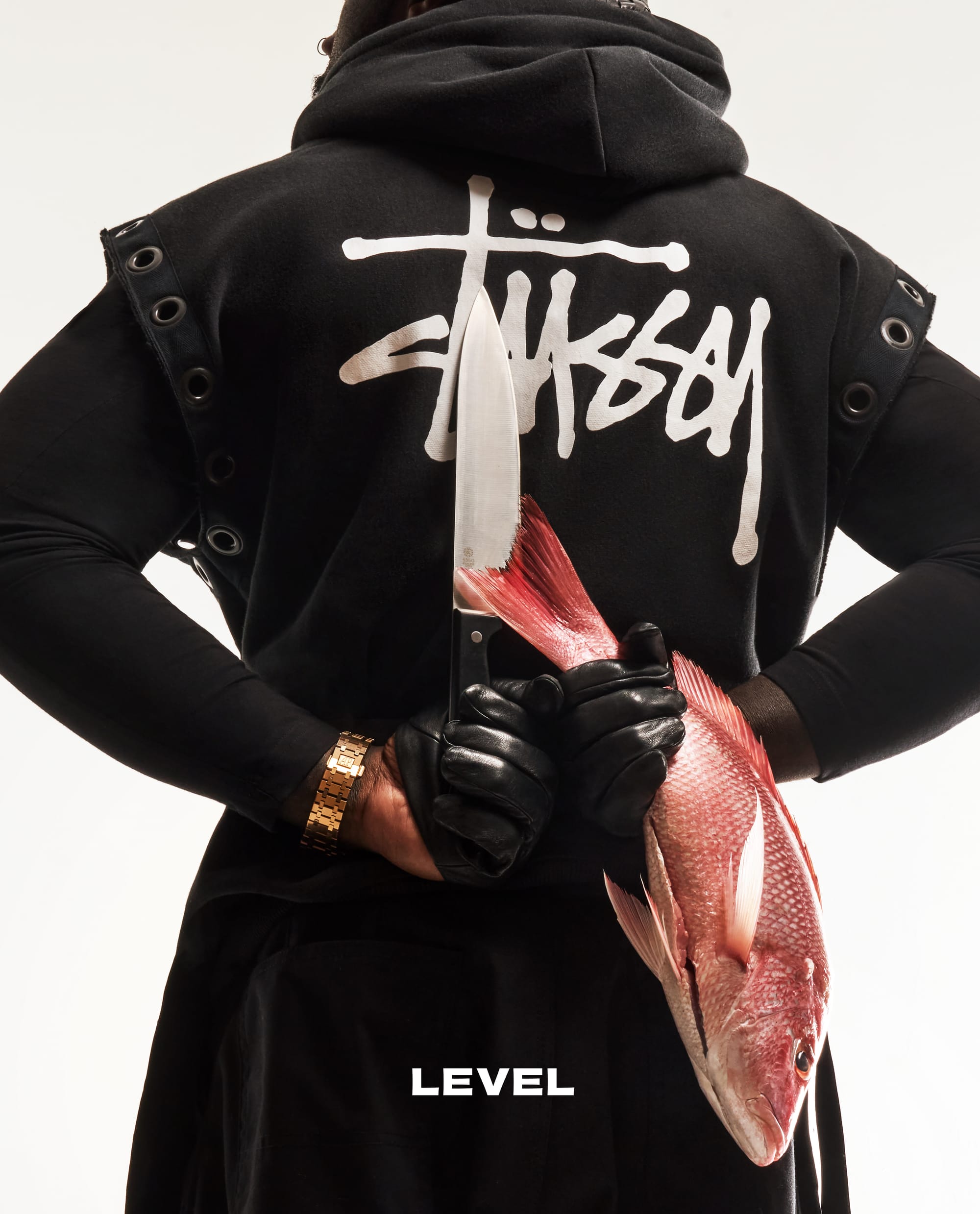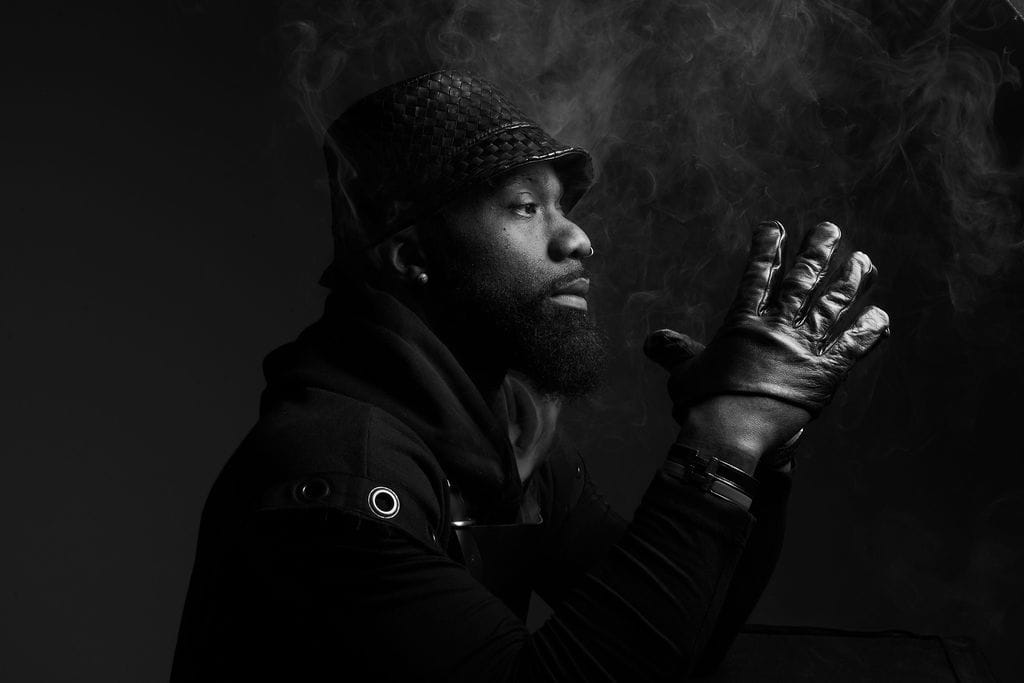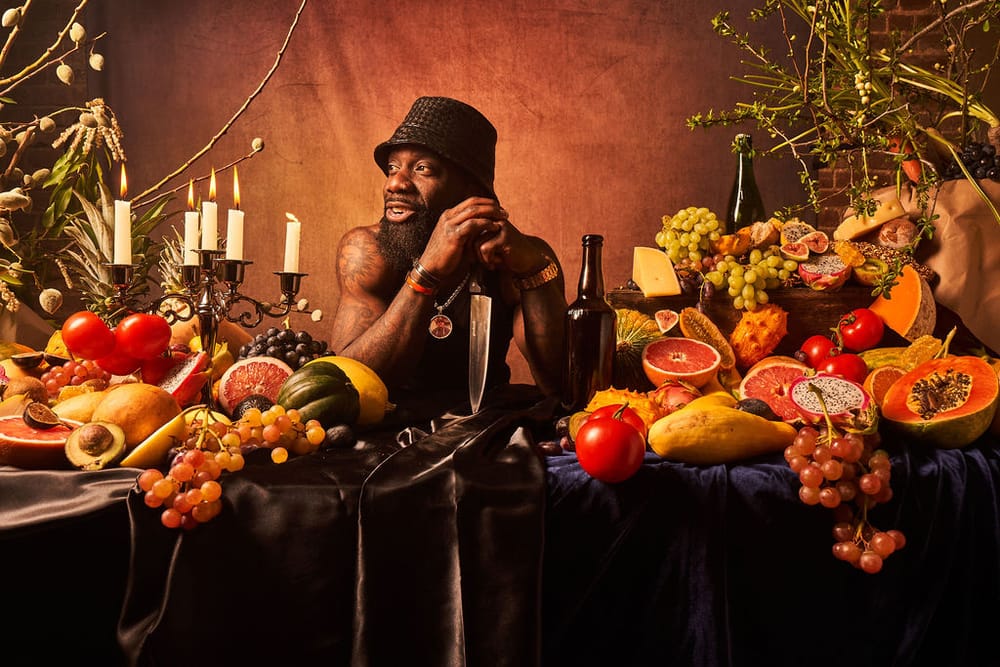Tobias Dorzon is living proof that magic is made in the kitchen. Growing up in Maryland, the culinary ace cut his teeth early in the space by assisting his dad in the operations of being a master chef. Equipped with turbo speed, Chef Tobias ultimately chose to earn his stripes on the football field, eventually earning a scholarship to Jackson State University. But even then, he never strayed too far away from his ingrained love for cuisine. “We would have fish fries and I’d be the one cooking,” he remembers. “Sometimes people would comment on my pictures and be like, ‘I remember when you was cooking in the dorms!’”
After a run of playing football professionally in both the National Football League and Canadian Football League, Tobias decided to hang up his cleats for good in the latter half of his 20s to become a full-time chef. He went to the Art Institute of Washington and then the Italian Culinary Institute to study fine dining. With extensive knowledge of the proper diet athletes need to feel and perform well, he built up his celebrity clientele upon graduating. He cooked for high-level figures like Santana Moss, Rajon Rondo, Lil Baby, Chris Brown, and James Harden—who hired Tobias as his personal chef in the 2020 NBA bubble and to eventually become the executive chef of Harden’s restaurant Thirteen in Houston. (The dish that won the former NBA MVP over? “Curry shrimp,” Dorzon says.)
Related: The Unbelievable Rise of Don Pooh and His Restaurant Empire
From there, Tobias continued to feed the DMV and beyond through his Victory catering brand. He grew in popularity nationally when he was invited to be a contestant on Guy’s Grocery Games in 2018, a competition that he’s won four times, besting more than 100 other chefs in total. Elsewhere, he was featured on Food Network’s Tournament of Champions, where he finished third. Now, Tobias is the star of his own ESPN+ show, Timeout with Tobias, a first of its kind cooking talk show on the sports network that in its debut season featured guests like Tanzel Smart of the New York Jets, former WNBA lottery pick Ty Young, and the New York Giants’ Kayvon Thibodeaux.
On Dorzon’s intention with the show, he adds: “I can give you a recipe or a way to cook for viewers at home, simple recipes. And just having good conversation and learning things about people that you didn't know.”
On top of that, these days, Tobias is running his own Huncho House restaurant back home. And he has a new African and Asian fusion eatery called 1123 that’s set to open soon. "My goal is not to have money like a rapper or athlete,” he says. “I just want to change the narrative of what chefs are supposed to look like and how they're supposed to talk. But also push immaculate energy and food."
LEVEL caught up with Tobias Dorzon to discuss his career journey, his extravagant fashion sense, fatherhood, and why ordering your steak well-done is a crime against the culinary arts. Yes, chef!

LEVEL: How did the concept and premise of Timeout with Tobias come about?
Tobias Dorzon: My career started out working with athletes and cooking in their house every day. I wanted to do a podcast for a while, getting to know these athletes outside of their prospective sports. They say the best conversations happen over food, so why not just do it right here? Me being able to talk about my dad starting to deal with the early stages of dementia and being able to relate to other people going through the same issues, it's a blessing. I just want to thank ESPN for giving me the opportunity to mix food and good conversation, bring up stuff like fashion, and give a recipe to viewers at home. Before every show, I told every athlete, “Just be yourself.” You ain't gotta worry about me asking crazy questions—I'm not trying to exploit anybody. I'm really just trying to get to know somebody on another level.
What is your favorite episode of this first season?
My episode with Ty Young was phenomenal. I think that was my best episode. Ty Young lost her father in the middle of a basketball season—how do you deal with that? People get super vulnerable because they're comfortable. They're eating good. I'm getting vulnerable as well. And we're just talking to each other, man. People are gonna get the chance to learn who Ty Young is off the court.
Your dad was a master chef. Which of his dishes did you fall in love with as a child?
Me being West African, we have a thing called fufu that you eat with your hands. It's like a dough, not really much flavoring. You really soaking it in whatever stew that you’re eating with it. Eating with my hands introduced me to textures: slimy, watery, dry, rough. It introduced me to these flavors, because different stews have different meats. You may run across a piece of beef that's a little more tender than some chicken while you dip your fufu in it. Fufu is the thing I loved to eat and make when I was a child. I ate it so much that I grew out of it.

You’ve talked about wanting diners at Huncho House to expand their palettes and consume food the way it’s intended.
We don't want you to come here and get the same thing you can get down the street. I'm going to introduce you to a snapper with the head on it and a sweet and spicy pasta you're not used to eating. I'm going to tell you why I feel you should eat a medium steak. There's no reason you should be eating wagyu filet on a high temperature cooked medium-well or well-done. You just eating leather.
Yeah, some people really struggle with figuring out the best degree of doneness for steak.
First of all, that's not blood on the plate. I think we struggle with being afraid to test our palate. In culinary school, you have to taste it whether you like it or not. If you ain't allergic to it, you gotta taste it. I paired a lot of dishes on my menu with risotto—something our culture is not familiar with. You like fried cod and chips. Cool. Try sea bass. It's all about trying. It's all about getting people comfortable. When you walk into Huncho House, you get a glass of champagne upon arrival. You already let your guard down.
"My goal is not to have money like a rapper or athlete. I just want to change the narrative of what chefs are supposed to look like and how they're supposed to talk. But also push immaculate energy and food."
You like chicken? Well, we have these amazing French chicken lollipops where chefs take the meat off the bone, marinate it for 24 hours with jerk seasoning, bake them and finish in the fryer. It's still chicken wings, but it looks cute. When you make people comfortable with things they're not familiar with, they'll try more. But when you keep 'em in the box by not even asking them, they'll never even jump out of their own box.
Does it ever get old surprising people with your range as a chef?
No. I get excited every time. I be wanting to put more chains on when I'm about to go cook. But back then, going into competitions, people probably used to be like, “Oh, look at this little urban kid they probably gave an opportunity to.” And then I get in the kitchen and start burning your ass up and then it's like, “Damn, your knife skills are amazing!” What’s a chef supposed to look like? I'm supposed to walk around with checkered pants and a chef jacket every day with a top hat?
How do you bring your love for fashion into the culinary space? Where does that come from?
I just wanna take our food, and put my swag on it. So that's why I cook in Balenciaga. That's why I like my chefs to look fashionable and my restaurant to look amazing. I like to have double wine glass on the tables. I like to have things that make you feel good about what you're about to receive. The better I look while I'm doing something, the better I'ma do it.
How did you become executive chef at James Harden’s Houston restaurant, Thirteen?
We actually met in Miami. I opened a restaurant in Miami and we met there. He asked me to go to the bubble with him during Covid. I stayed for about two months. And we kept talking about this restaurant that he had and a vision of how he wanted a restaurant upstairs, a hookah lounge on the other side, a bowling alley and a club in the basement. He gave me free reign to do any and everything. James never checked the menu. He knew my vision was clear and knew I could bring his vision to life. We were like the first Black fine-dining restaurant in Houston.
"Cooking for celebrities was great—but cooking for celebrities that don't have a palate isn't. I could cook for Jay-Z every day. If Jay-Z just likes to eat catfish and grits, I'm not elevating myself as a chef."
What does the day-to-day of being a celebrity chef look like?
By the time I got with James [Harden], I was establishing my career to where I could pick and choose who I actually wanted to cook for. Someone like James, who's an NBA superstar, he's gotta make sure he eats right—three meals a day. If I know he got a 5 o’clock game, I'm not about to give him mashed potatoes and steak knowing that he's gonna be heavy on the court.
Cooking for celebrities was great—but cooking for celebrities that don't have a palate isn't. I could cook for Jay-Z every day. If Jay-Z just likes to eat catfish and grits, I'm not elevating myself as a chef. My end goal ain't the money; my end goal is to be recognized as one of the best chefs in the world overall. Not by color but by craft.
You've been climbing the ranks steadily over the years. What would you say was your "I've arrived" moment in the culinary space?
I felt like I was him for a while. I had to get out of my comfort zone. I understood who I really was as a chef when I started seeing different palates. Originally, living in an urban city, I was doing a lot of brunches and not being able to tap into what I'm actually great at, which is French and Italian cuisine. My breakthrough moment was when I went on Tournament of Champions. I finished third out of 32 chefs. And I haven't really even cracked the surface of who I am as a chef.
How did Guy Fieri become your mentor, and what guidance has he given you?
I met Guy in 2018. I got invited to a Guy's Grocery Games show. I was starting to get in the groove of things, starting to feel comfortable as a chef. But I'm still trying to figure myself out. When I was there, he was like, “Always remember, make yourself memorable. Make people wanna see you again, whether you win or lose.” And that was exactly what I did. I ended up winning. Ever since, Guy constantly puts me on, gives me opportunities, and gives me chances to grow, to develop.
"There ain't no amount of money that can make me feel the way my kids make me feel by being happy to see their dad worked hard and it shows."
Switching gears, what is the best part about fatherhood to you?
When I go to my daughter's school and it's like, “Oh my god, that's Riley's dad!” Or “That's Tory's dad!” My daughters get a thrill out of talking about me and that's the biggest high in my life. My daughter can always brag about her dad: “My favorite rapper, my dad cooked for him. My dad is on TV.” It's a feeling that not much can replace. There ain't no amount of money that can make me feel the way my kids make me feel by being happy to see their dad worked hard and it shows.
Related: Cooking for My Kids Feeds My Soul and Theirs
Anything else you want to say before we wrap?
I really just want people to understand that the best part about [Timeout With Tobias] is riding your own wave. Don't let people rush you. Don't let people make you feel like what you wanna do is wrong. For a long time, I wanted validation from people that never supported [me] in the first place, rather than taking the validation from people that have been riding it out with [me] the whole time.
I'm blessed and I always tell God thank you everything that's coming my way. And I keep telling Black kids that look like me, talk like me, and wake up everyday trying to figure out what they wanna do in life: Don't do what society makes you feel like you need to do. Be who you wanna be. Making other people happy won't make you happy. You always gotta be happy from within to give out good energy to the world.

